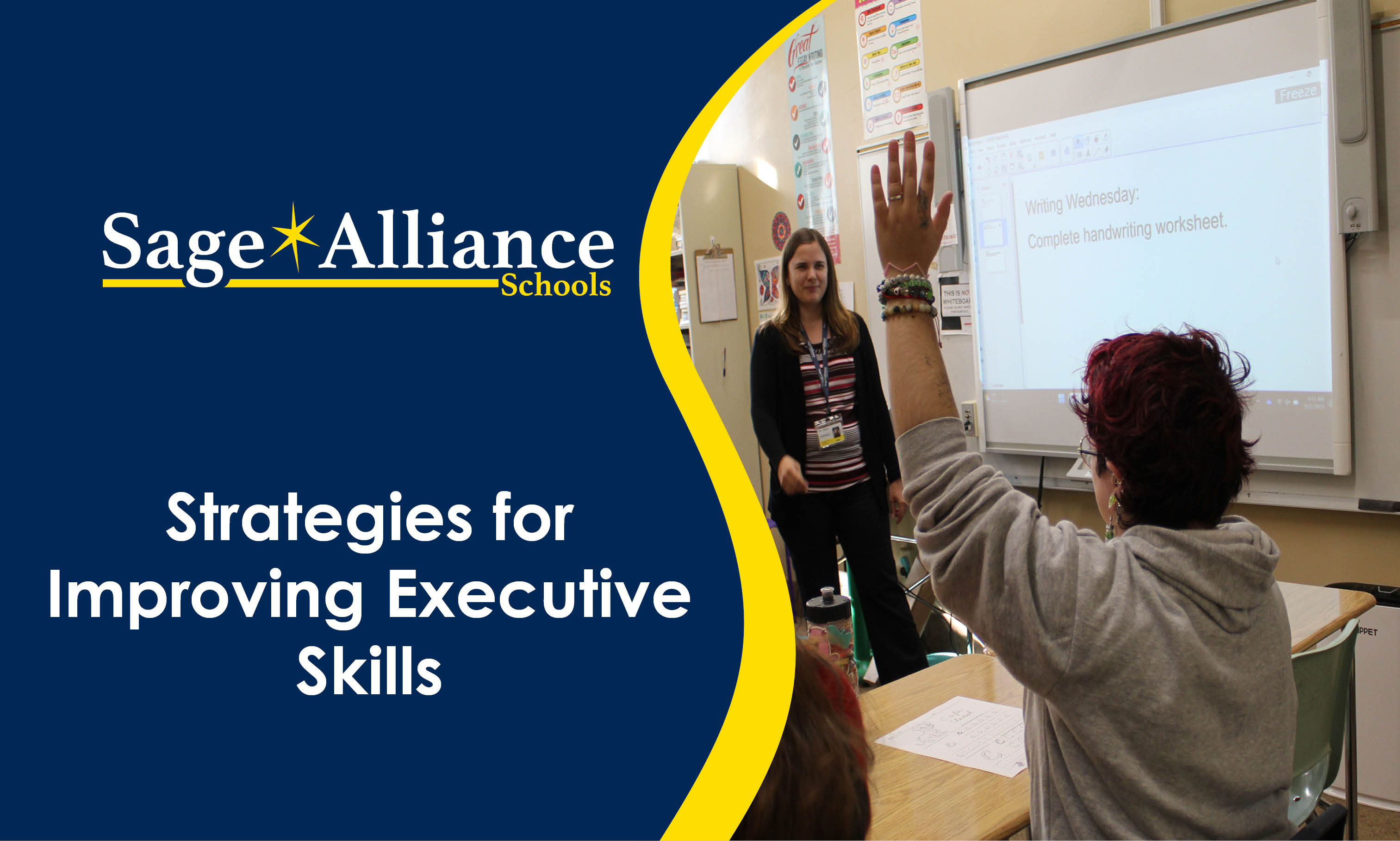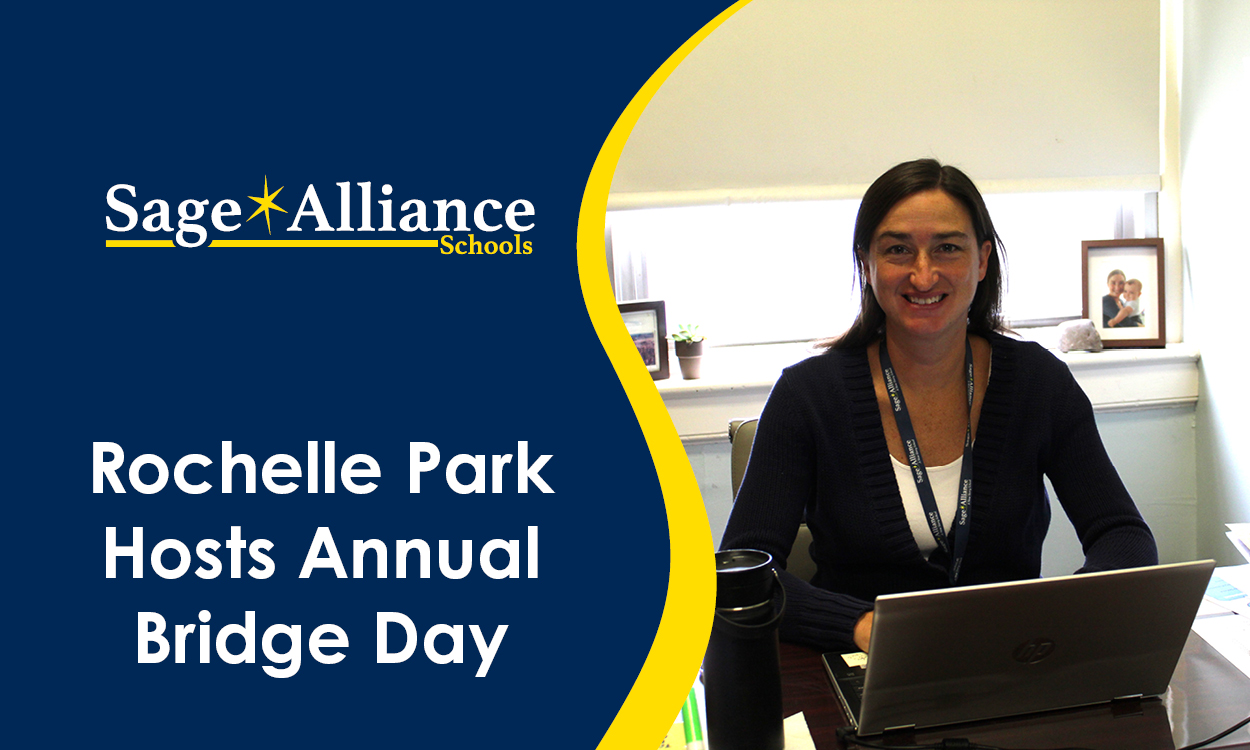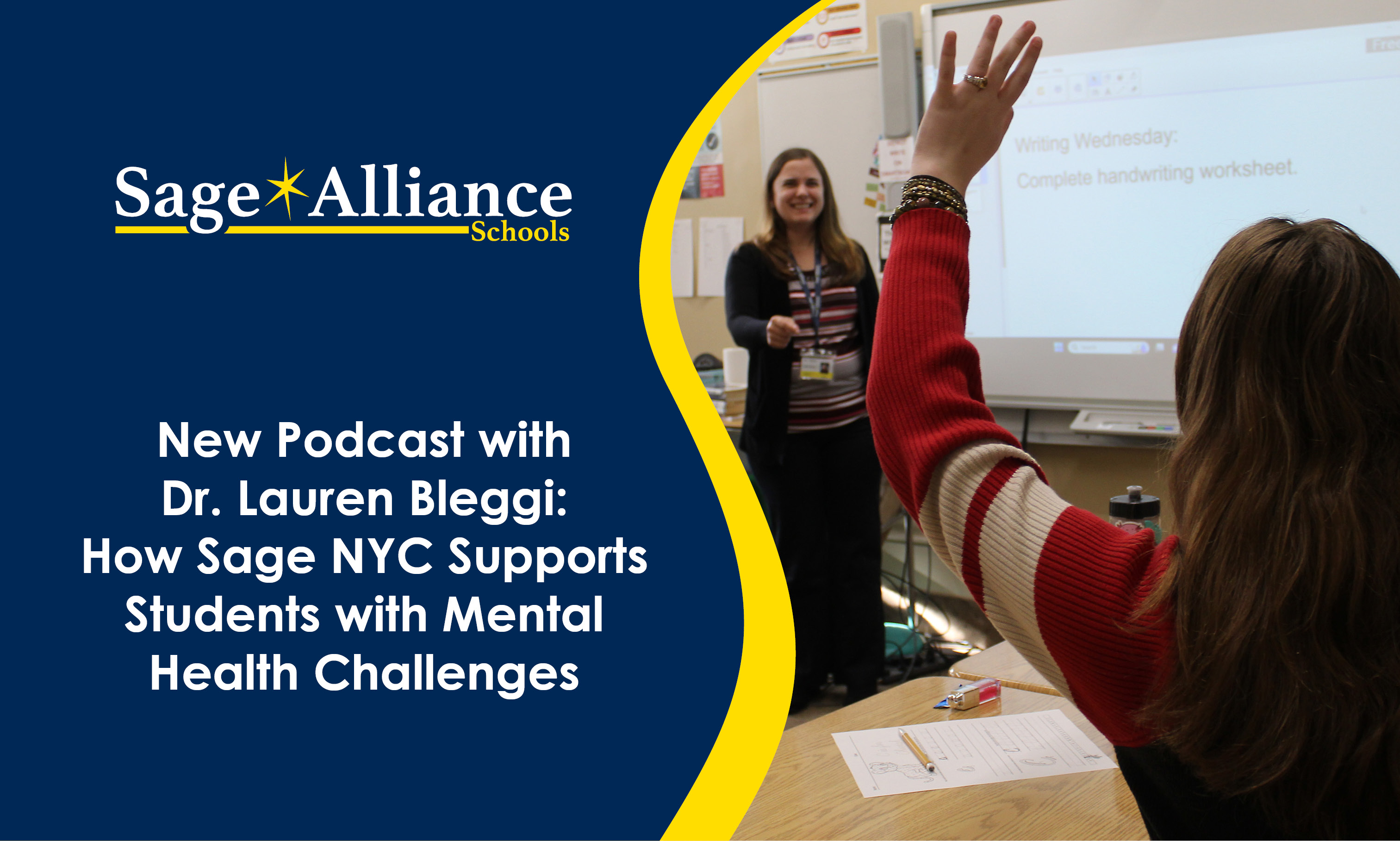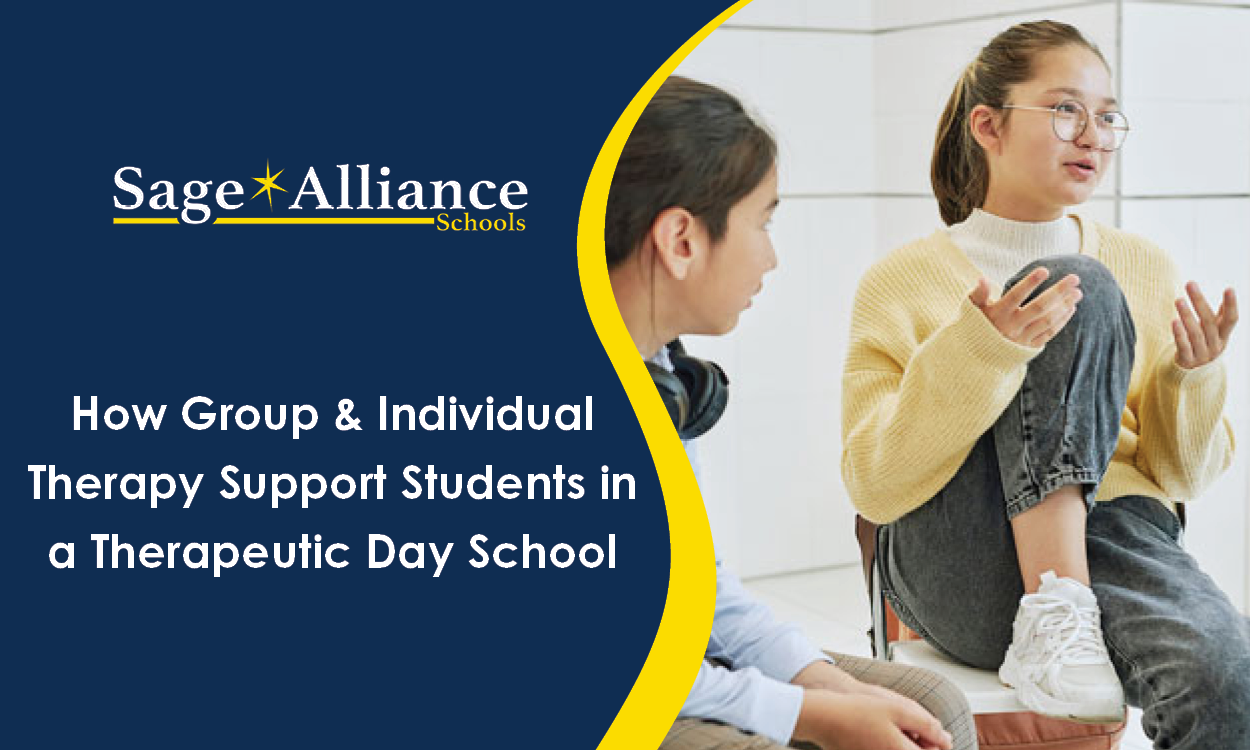Strategies for Improving Executive Skills
Posted: April 17, 2024 | Written By: | Category: Therapeutic Education

By Viki Wilson
Principal Sage Alliance Boonton Campus
Research shows us that lack of self-regulation and executive functioning skills can be to blame for our students' barriers to success, but there seems to be very little information about how to develop these very complex skills. The solution may be less complex than you may think. Experience has shown me that often, the simplest solution is best.
Support and feedback
If we want our students to learn how to independently self-regulate, external support is necessary to make internal changes. Just because you provided step-by-step instructions once doesn’t mean you won’t have to do it again, and again, and again. Practice and repetition are keys to growth. Keep in mind, it takes a minimum of 45 days to create a habit. Verbal praise and feedback are also important for students to progress, and feedback should be specific and sincere. A simple “good job” without any feedback about what they did right or how they can improve, may make it hard for students to understand why they are getting the feedback or how they can benefit from it in the future. For example, imagine a teacher tells a student, "Great job on your math assignment." However, they don't provide any specific feedback on which math concepts the student grasped well or where they could improve. Without this guidance, the student may struggle to comprehend why they received praise and might find it challenging to apply any lessons learned to future assignments.
Ask instead of instructing
So, what about the student that does not want to be supported? Don’t fight their developmental need to be in control. Create the illusion of control for them by asking versus telling them to do something. For example, “Would you mind helping me with…?” or “Perhaps you may want to consider trying to approach the problem this way…” or “What do you think would happen if…”
Explain what you would like students to do instead of dictating. How you say something is often more important than what you say. As adults we are not always aware of how our tone impacts the message we intend to convey. It is important to build in choices. Asking questions like, “Would you like to use paper and pencil or your chrome book?” gives the student the option of choosing how they do a task without making the task optional. Other ways of gaining task compliance would be to modify tasks to match a student’s ability to exert effort, break down difficult tasks into small increments, and consider building in breaks for longer tasks.
Additional tips for improving executive skills are:
- Give your students explicit directions, both verbally and visually.
- Create, and stick to, a daily routine. Students need predictability to feel safe.
- Provide opportunities for guided practice daily and build practice into your routine. You may be surprised how much of a difference two-minute review drills of mastered and skills in progress can make for a student’s skill development.
Whether you choose to use one or many of the tips above, the time invested up front will save time in the future. The goal is to provide enough support for students to succeed. As mentioned before, keep it simple and start slow, you can always add more support if needed. Then gradually remove supports after mastery of goals has been achieved. One mistake a teacher can make is pulling supports before a student is ready. Be sure to look and listen to what the student’s behavior is telling you. If you follow their lead, they will tell you when it's time to start pushing them out of the nest.
Want to be notified of new articles and resources from Sage Alliance? Click here to submit your email and opt into our newsletter.









